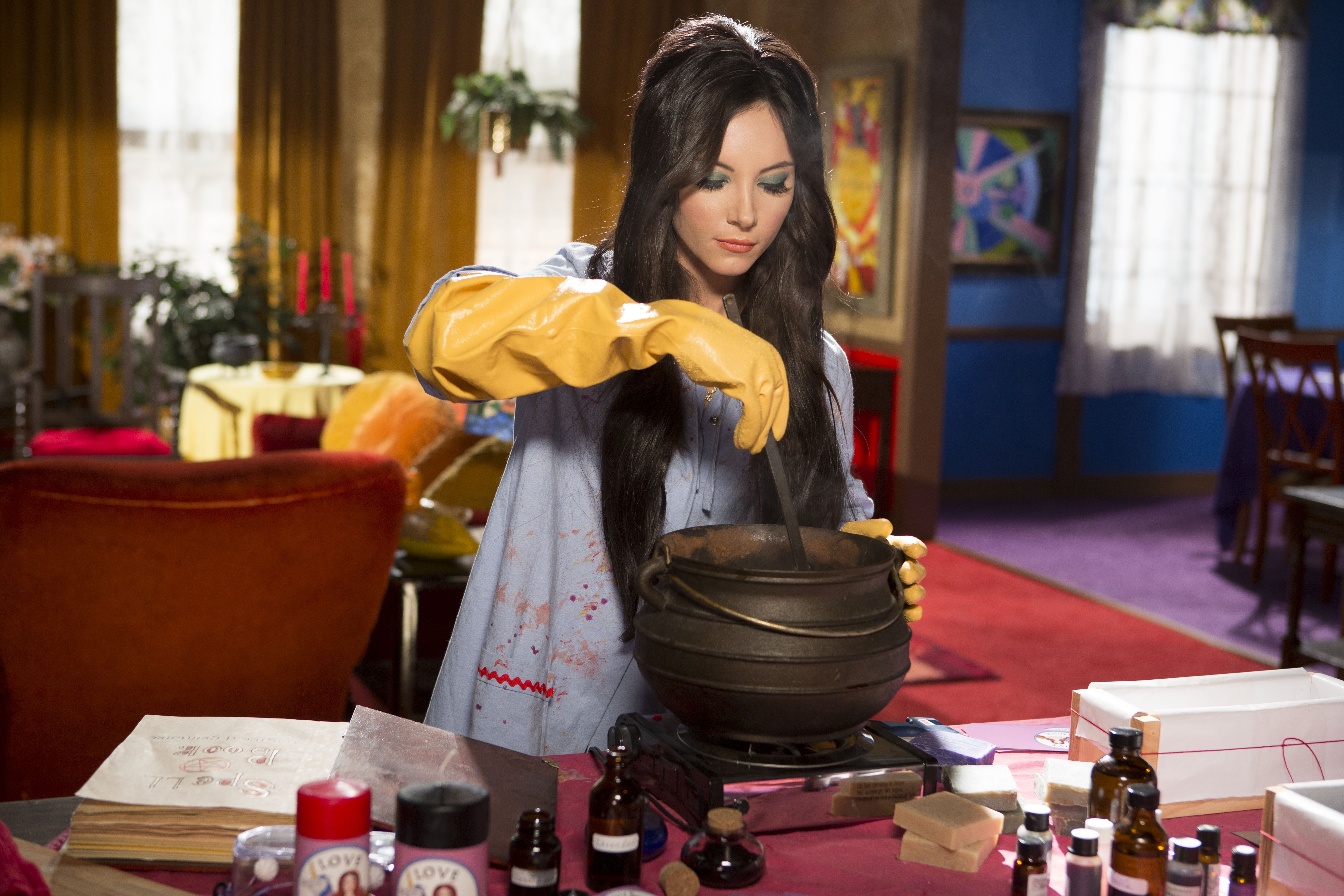This post originally appeared on Creators.
She’s a woman consumed by the pursuit of love, but Elaine (Samantha Robinson), the titular character in Anna Biller’s The Love Witch, just can’t keep from killing her conquests. Yet in the love ’em and leave ’em film landscape, where films like American Pie and Wedding Crashers have come to define the word, “conquests” is misleading: for Elaine, it isn’t about notches in a bedpost, it’s about love, real love, the kind that makes you want to give up your own life and start a whole new one with someone else. This is Elaine’s magical power, an all-consuming love, and up until the California-cool meets cult-camp film’s conclusion, she just can’t help but take the lives of the men she meets.
Videos by VICE
To coincide with NSFW: Female Gaze, co-curated by Creators and the Museum of Sex, The Love Witch touched down at the legendary experimental film center Anthology Film Archives in New York. Ahead of the screening, which ran as a double-feature with Biller’s previous film—screening for the first time since its 2007 release—the stylish sexual awakening comedy-drama, Viva, Creators spoke to the director about female sexuality, gaze, and the fear of a sexually-empowered woman.

“I’m very deliberately discussing female sexuality, because I think it’s been erased,” Biller says of her films. “Most erotica is from a male point of view; females write erotica, and they make erotic films, but the majority of erotica consumers are still men. Often when women are doing erotic films for women, they end up being consumed mostly by men. […] No matter how much you make a movie about female sexuality, if they find it even remotely erotic, males seize and own it, and make it for them.” This is why Biller labels her work both erotic and anti-erotic: “an ambivalence that you don’t see in men’s work quite as much.”

Case in point: After Elaine courts college professor and self-described libertine, Wayne, with a combination of her cooking and a hallucinogenic concoction, she’s repulsed by his transformation into a simpering, whimpering baby-man via his overwhelming feelings for her. Here’s a challenge for all you cinephiles: name a major modern motion picture wherein a woman, the protagonist, falls out of love with a man. Exactly.

It’s a testament to both Biller’s inventiveness as the film’s writer, director, producer, editor, production designer, art director, and costume designer, and her nuanced understanding of the complicated world of female sexuality. “It’s such a different film than what anybody is making now,” Biller admits. “The type of glamor and self-possession that the character has is not contemporary.” Instead, it’s akin to both the 60s and 70s pulp romance novels and real-life Wicca practices to which the director owes her inspiration. “I’m trying to be more honest and less hip,” she laughs, “and because I’m not interested in being hip, my work ends up being more hip.”

To feminist detractors, who may challenge The Love Witch over its depiction of a beautiful female anti-heroine who uses her sex for power, Biller says this: “It’s not like I’m unaware of the issues; I’m kind of doing it anyway. I’m stepping out on a limb to present fantasies that might be seen as old fashioned, icky, maybe masochistic, or not-so progressive. There’s a political part of yourself, but there’s also a part you find pleasurable. I ask, What do I actually find pleasurable? And I put that in a film. That, for me, is what the female gaze is all about.”

Click here to visit Anna Biller’s website.




